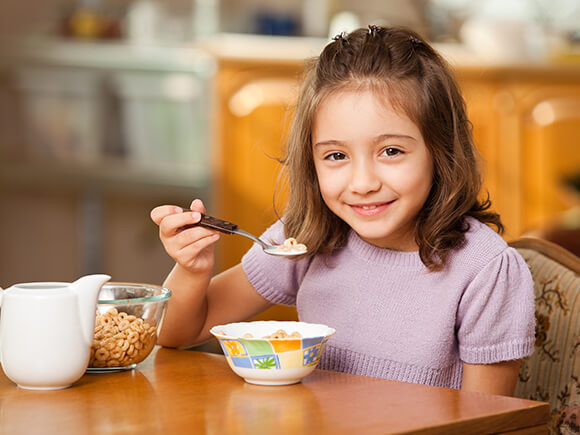Nutritious Food Plan for Kids
Nutritious food for kids is important for your child’s healthy growth and development. Nutrition for kids are broadly divided into macronutrients and micronutrients. Macronutrients include carbohydrates, proteins and fats and are required in larger quantities. Cereals, pulses, tubers, etc. are rich in macronutrients. Micronutrients include vitamins and minerals which are required in smaller quantities. Milk, fruits, vegetables, green leafy vegetables, dry fruits, non-vegetarian foods, etc. are good sources of micronutrients that are needed for your child’s healthy bones, skin, eyes, and brain development.

Normally, pre-school children grow rapidly and have higher activity levels and nutrient requirements. However, due to their small tummy capacity, they cannot eat enough to obtain all the necessary nutrition for kids required from their regular meals. Traditional food prepared at home usually consists of cereals, roots, and starchy fruits, which provide energy with very little proteins. Only vegetarian or plant-based complementary foods may not sufficiently fill the gap in nutrition for kids. Therefore, it is important that you introduce nutritious food for kids at this stage to ensure that your child gets all the macro and micronutrients that will help bridge the nutrient gap.
Here is a list of nutritious food for kids and tips to help boost the nutrition for kids –
a) Keep lots of fresh fruit and veggie snacks on hand. Make sure they’re already washed, cut up, and ready to go. Add yogurt, nut butter, or hummus for extra protein.
b) Let your kids pick the veggies and fruits that they would like. It helps inculcate a healthier eating habit.
c) Use nutritious fats, i.e. healthy fats like - olive oil, avocados, nuts (like almonds, hazelnuts, and pecans), and seeds (such as pumpkin, sesame)
d) Boil some eggs at the beginning of the week and to add to your kids breakfast along with a low-sugar, high-protein cereal, and an apple to go.

FREE SAMPLE
Please fill the form to request for a free sample
























